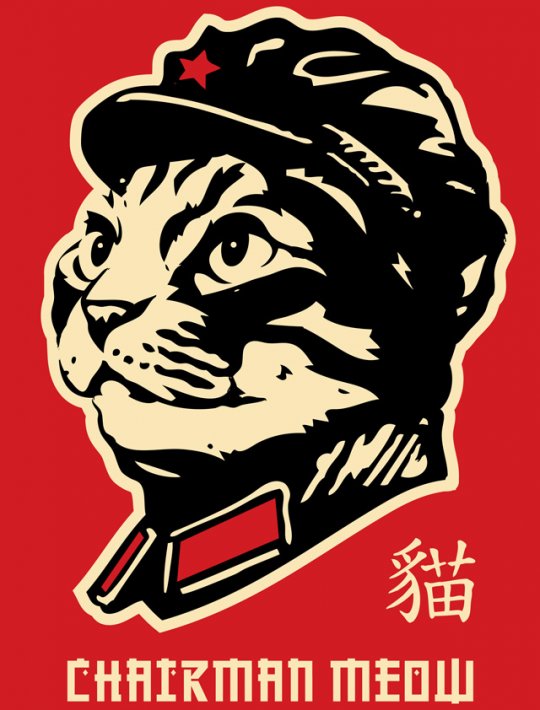I dare not reveal my handle, though some of you may follow me on X / Twitter.
Also, what has been your experience with Bluesky? 'Cause I quite like it so far.
Besides the new influx of users, what does bluesky have that the fediverse doesn’t, feature-wise. Because ownership-wise it’s no different than twitter.

I had an account when it was invite only but deleted it
i’m in bluesky, but i also use mastodon…
Bluesky’s just a fad, the liberals there will turn on each other soon enough and come running back to the bird app.
I don’t want to use another privately owned social media platform. There’s no reason to believe it won’t enshittify.
What about Fediverse?
…what? The idea of federation, as I understand it, is there’s not a single person or org in charge. The different instances talk to each other, and I can leave or block one server without leaving the whole thing. On Reddit or Twitter or bluesky, you play by their rules or you get nothing.
ok
I think there’s a fundamental problem with any privately owned platform. We must remember who owns these platforms and whose interests they ultimately represent. These are not neutral and unbiased channels that allow for the free flow of information. The content on these sites is carefully curated. Views and opinions that are unpalatable to the owners of these platforms are often suppressed, and sometimes outright banned. When the content that the user produce does not fit with the interests of the platform it gets removed and communities end up being destroyed.
Another problem is that user data constitutes a significant source of revenue for corporate social media platforms. The information collected about the users can reveal a lot more about the individual than most people realize. It’s possible for the owners of the platforms to identify users based on the address of the device they’re using, see their location, who they interact with, and so on. This creates a comprehensive profile of the person along with the network of individuals whom they interact with.
This information is shared with the affiliates of the platform as well as government entities. For example, a leak from RCMP shows how this kind of information is used to spy on Canadian citizens.
It’s clear that commercial platforms do not respect user privacy, nor are the users in control of their content. While it can be useful to participate on such platforms in order to agitate, educate, and recruit comrades, they should not be seen as open forums.
Open source platforms provide an alternative to corporate social media. These platforms are developed on a non-profit basis and are hosted by volunteers across the globe. A growing number of such platforms are available today and millions of people are using them already.
From that perspective I think that Mastodon is the platform that we should focus on using and growing. While Mastodon retains a similar user experience to Twitter, there is one major difference—it is a federated platform. Instead of all users having accounts on the same server, there are many Mastodon servers that all talk to each other to create the Mastodon network. If you have the technical expertise, it’s even possible to run your own. For example, I set up my own instance using masto.host and I get to decide exactly how it’s run.
Mastodon is built around an open standard allowing other platforms to integrate with it. This led to a number of open platforms being created and joining the network. Collectively these platforms are referred to as the Fediverse. One important aspect of the Fediverse is that it’s much harder to censor and manipulate content than it is with centralized networks such as Facebook. There is no single company deciding what content can go on the network, and servers are hosted by regular people across many different countries and jurisdictions.
Pixelfed is an alternative to Instagram that caters to artists and photographers. PeerTube is a YouTube alternative, Plume is a blogging platform akin to Medium, and Lemmy is a news aggregator forum inspired by Reddit.
All these platforms are developed in the open, and the developers themselves are often left-wing activists (as is the case with Mastodon and Lemmy). These platforms explicitly avoid tracking users and collecting their data. Not only are these platforms better at respecting user privacy, they also tend to provide a better user experience without annoying ads and popups.
Another interesting aspect of the Fediverse is that it promotes collaboration. Traditional commercial platforms like Facebook, Twitter, and Youtube have no incentive to allow users to move data between them. They directly compete for users in a zero sum game and go out of their way to make it difficult to share content across them. This is the reason we often see screenshots from one site being posted on another.
On the other hand, a federated network that’s developed in the open and largely hosted non-profit results in a positive-sum game environment. Users joining any of the platforms on the network help grow the entire network.
Having many different sites hosted by individuals was the way the internet was intended to work in the first place, it’s actually quite impressive how corporations took the open network of the internet and managed to turn it into a series of walled gardens. Marxist theory states that in order to be free, the workers must own the means of production. This idea is directly applicable in the context of social media. Only when we own the platforms that we use will we be free to post our thoughts and ideas without having to worry about them being censored by corporate interests.
No matter how great a commercial platform might be, sooner or later it’s going to either disappear or change in a way that doesn’t suit you because companies must constantly chase profit in order to survive. This is a bad situation to be in as a user since you have little control over the evolution of a platform.
On the other hand, open source has a very different dynamic. Projects can survive with little or no commercial incentive because they’re developed by people who themselves benefit from their work. Projects can also be easily forked and taken in different directions by different groups of users if there is a disagreement regarding the direction of the platform. Even when projects become abandoned, they can be picked up again by new teams as long as there is an interested community of users around them.
It’s time for us to get serious about owning our tools and start using communication platforms built by the people and for the people.
Don’t intend to join (yet), but seems like a good alternative to X and Meta. Maybe if it’ll become bigger I’ll join
It passed 15 million users and climbing fast. Activity is also high.
Twitter and its consequences have been a disaster for the human race.
I like Bluesky.
X is worse though.
tbf, it’s good so far
lots of leftists
Thing is, both of those statements were true of twitter at one point.
To my knowledge there’s no qualitative difference in implementation that will prevent BS ending up the same way as twitter.
But it also can’t be ignored the same way twitter can’t be ignored. It’s shaping to become another major public forum: to ignore it is to remove your own voice.
All in all I think the right play is critical participation, while throwing support behind the fediverse.
I really dont see the appeal. Dont intend to use it. i never used twitter either tho.
not using Twitter is probably for the best
So far, Fedi is much better than Bluesky. I might use Bluesky as a staging point for people to give Mastodon and Misskey a try.
Should I use Fedi? What about Mastodon and Misskey?
I wouldn’t worry too much regarding which one you use because they interop with each other. Also worth noting that with Mastodon there’s no built in support for migrating your account to a different server. Might be the case with Misskey as well, but not as familiar with it.
And I wouldn’t worry too much which instance you sign up for. One of the bigger ones is better because it’s likely more proactively maintained, but you’ll be able to see content from other servers as well, so you’re not limited to the server you’re on.
Yes! Misskey and Sharkey are way better than Mastodon.
Haven’t really found a rhythm/use for it yet, even though I’m technically on there. I was already low profile on twitter and I don’t really have the energy or a direction, for trying to build an account and use it tactically for messaging. I imagine it’s probably less chud? But I expect it to be pretty lib nevertheless, which can be a nuisance in its own way.
It is less chud, by far.
Very skeptical, I see a lot of libs jumping over because they want to distance themselves from Twitter.
libs and leftists, tbh
When given the choice of conservative techbro brainworms on Twitter, and lib blue MAGA brainworms on bluesky, I’ll just stick with Lemmy.
Your choice. It’s fine.















